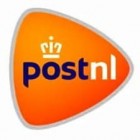Vluchtgegevens opvragen, zoals klant dat zelf ook zou doen, mag
Hof Amsterdam, nevenzittingsplaats Arnhem 13 maart 2012, LJN BW0096 (PR Aviation tegen Ryanair Ltd)
 Uitspraak ingestuurd door Bas Le Poole en Bart Lukaszewicz, Houthoff Buruma en Antoon Quaedvlieg, Klos Morel Vos & Schaap.
Uitspraak ingestuurd door Bas Le Poole en Bart Lukaszewicz, Houthoff Buruma en Antoon Quaedvlieg, Klos Morel Vos & Schaap.
In navolging van IEF 9013. Auteursrecht. Samenloop databankenrecht en geschriftenbescherming. Ryanair biedt goedkope vluchten in Europa aan. PR Aviation exploiteert de websites wegolo.com / .nl waarop vluchten en prijzen kunnen worden vergeleken, waaronder die vluchten die door Ryanair worden aangeboden. Het boeken geschiedt daarbij via PR Aviation die daarvoor bemiddelingskosten rekent. Met het zoek- en boeksysteem handelt PR Aviation in strijd met de gebruiksvoorwaarden van Ryanair. Ryanair vraagt een veroordeling op grond van het databankenrecht, auteursrecht op de webiste en vordert een verbod op 'screenscraping' en het bezoeken van de website voor commerciële doeleinden. De rechtbank volgt Ryanair in haar auteursrechtelijke, maar niet in de databankrechtelijke vordering. Het Hof oordeelt ander en vernietigt het vonnis en wijst de vorderingen van Ryanair af en veroordeelt haar in de kosten van beide instanties.
Bij een (tijdelijke) overname van vluchtgegevens, die ook via de website van Ryanair kan worden bekeken, is er sprake van normaal gebruik van de gegevensverzameling. Er worden per zoekopdracht van een klant vluchtgegevens opgevraagd, zoals de klant dat zelf ook zou doen als hij rechtstreeks gebruik zou maken van de Ryanair website. De overname geschiedt daarmee in overeenstemming met het eigenlijke doel van de openbare beschikbaarstelling, namelijk verschaffen van informatie aan consumenten en gebruik door consumenten voor het verrichten van een boeking. Ten slotte mag niet over het hoofd worden gezien dat PR Aviation met haar dienst Ryanair ook klanten bezorgt. Grieven inzake het citaatrecht ex 15a Auteursrecht en tijdelijk reproductierecht ex 13a Auteurswet krijgen geen bespreking meer.
4.21 De verveelvoudiging die door PR Aviation wordt vervaardigd, bestaat eruit dat per zoekopdracht van een klant enkele vluchtgegevens van de website van Ryanair (tijdelijk) worden overgenomen (ervan uitgaande dat er een vlucht van Ryanair is die aan de zoekvraag van de klant beantwoordt), om deze gegevens in een overzicht aan de klant te tonen en, indien de klant ervoor kiest de geselecteerde vlucht via de website van PR Aviation te boeken, het boekingsproces verder te verlopen. Duidelijk is dat die verveelvoudiging noodzakelijk is om op deze wijze toegang tot de gegevensverzameling van Ryanair te hebben en daarvan gebruik te kunnen maken. Dat de gegevensverzameling via de website van Ryanair voor iedere gebruiker toegankelijk is, maakt niet dat de overname van gegevens door PR aviation met het hiervoor beschreven doel niet als noodzakelijk kan worden beschouwd. Daarbij weegt mee dat PR Aviation met de door haar aangeboden dienst gebruik maakt van normale mogelijkheden tot raadpleging van de gegevensverzameling en daarmee in een gerechtvaardigde behoefte van consumenten om goedkope aanbiedingen voor luchtvervoer te vinden voorziet.
4.22 Naar het oordeel van het hof is ten slotte ook sprake van normaal gebruik van de gegevensverzameling. Zoals hiervoor al vermeld, worden per zoekopdracht van een klant vluchtgegevens opgevraagd, zoals de klant dat zelf ook zou doen als hij rechtstreeks gebruik zou maken van de Ryanair website. PR Aviation stelt terecht dat de overname van gegevens daarbij geschiedt in overeenstemming met het eigenlijke doel van de openbare beschikbaarstelling van de gegevens door Ryaniair, namelijk het verschaffen van informatie over haar vluchten aan consumenten en het gebruik van die informatie door consumenten voor het verrichten van een boeking. Dat het gebruik door PR Aviation strijdig is met de beperkingen die Ryanair in haar gebruiksvoorwaarden stelt, doet daaraan niet af. Daarbij is nog van belang dat, zoals in 4.19 is overwogen, niet valt in te zien dat PR Aviation door dit gebruik de reputatie van Ryanair schaadt en/of Ryanair de mogelijkheid onthoudt om zelf aanvullende diensten te verkopen. Ten slotte mag niet over het hoofd worden gezien dat PR Aviation door haar informatie- en bemiddelingsdiensten potentiële reizigers op het aanbod van Ryanair wijst, boekingen faciliteert en daarmee Ryanair ook klanten bezorgt.
4.23 Het voorgaande leidt het hof tot de conclusie dat, ook als veronderstellenderwijs wordt aangenomen dat de door Ryanair openbaar gemaakte digitale informatie onder de geschriftenbescherming ex artikel 10 lid 1 Auteursrecht valt, PR Aviation met haar handelswijze geen inbreuk maakt op het alsdan aan Ryanair toekomende auteursrecht. Anders dan de rechtbank heeft aangenomen, zijn de op die grondslag gebaseerde vorderingen van Ryanair dus evenmin toewijsbaar. Op de vraag of sprake is van een inbreuk op de geschriftenbescherming in de zin van bewijsbare ontlening van gegevens door PR Aviation behoeft daarom niet meer te worden ingegaan. De grieven 5 en 7, waarin PR Aviation een beroep heeft gedaan op het citaatrecht ex artikel 15a Auteursrecht en het tijdelijke reproductierecht ex artikel 13a Auteurswet, behoeven gelet op het voorgaande, bij gebrek aan belang, verder ook geen bespreking.
Lees het arrest hier (grosse zaaknr. 200.078.395, LJN BW0096)
Op andere blogs:
Ius Mentis (Prijsopvraagbotjes zijn geen inbreuk op databankrechten of geschriftenbescherming)
Mediareport (Geen bescherming voor vluchtgegevens Ryanair)
 Met bijgaand commentaar van Tobias Cohen Jehoram,
Met bijgaand commentaar van Tobias Cohen Jehoram,  Als randvermelding. Kunst & Recht. Bestuurdersaansprakelijkheid in / na faillissement in de kunstsector. Overheveling van activa, waaronder diverse IE-rechten.
Als randvermelding. Kunst & Recht. Bestuurdersaansprakelijkheid in / na faillissement in de kunstsector. Overheveling van activa, waaronder diverse IE-rechten. Prejudiciële vragen van Court of Appeal England & Wales. In navolging van Conclusie AG, zie IEF
Prejudiciële vragen van Court of Appeal England & Wales. In navolging van Conclusie AG, zie IEF  Met gelijktijdige dank aan Sikke Kingma,
Met gelijktijdige dank aan Sikke Kingma,  Met dank aan Rik Balk,
Met dank aan Rik Balk,  Politierechter ná civiele procedure. Internetbericht op Ruiver.nl met betrekking tot politicus: smaadschrift of vrijheid van meningsuiting: zeker waar het betreft het gestelde opknappen van het fabriekspand van [naam] met gemeenschapsgeld en de gestelde zakkenvullerij. Daarin zijn elementen van smaad in strafrechtelijke zin in beginsel aanwezig.
Politierechter ná civiele procedure. Internetbericht op Ruiver.nl met betrekking tot politicus: smaadschrift of vrijheid van meningsuiting: zeker waar het betreft het gestelde opknappen van het fabriekspand van [naam] met gemeenschapsgeld en de gestelde zakkenvullerij. Daarin zijn elementen van smaad in strafrechtelijke zin in beginsel aanwezig.
 Wet op de accijnzen. Vervalste of wederrechtelijk vervaardigde beeldmerken. Invoering van handelshoeveelheden verpakkingen met daarin sigaretten met de merknamen en beeldmerken van MARLBORO en LAMBERT & BUTLER zijnde een merk waarop een ander recht heeft, zijnde en bevattende valse, vervalste of wederrechtelijk vervaardigde merken.
Wet op de accijnzen. Vervalste of wederrechtelijk vervaardigde beeldmerken. Invoering van handelshoeveelheden verpakkingen met daarin sigaretten met de merknamen en beeldmerken van MARLBORO en LAMBERT & BUTLER zijnde een merk waarop een ander recht heeft, zijnde en bevattende valse, vervalste of wederrechtelijk vervaardigde merken. Computervredebreuk. Inloggen in databanken. Bewijsklacht feitelijk leiding geven. Computervredebreuk. Het oordeel van het hof is niet onbegrijpelijk. Het hof stelde vast dat verdachte - hoewel daartoe bevoegd en redelijkerwijs gehouden - geen maatregelen heeft genomen om te voorkomen dat met de inlogcodes zou worden ingelogd op de nieuwsserver (database) van het ANP, de aanmerkelijke kans heeft aanvaard dat van die inlogcodes gebruik zou worden gemaakt om onbevoegd toegang te krijgen tot de server van het ANP, is niet onbegrijpelijk. Dit kan niet tot cassatie leiden en ex art. 81 RO hoeft geen nadere motivering. De Hoge Raad verwerpt het beroep.
Computervredebreuk. Inloggen in databanken. Bewijsklacht feitelijk leiding geven. Computervredebreuk. Het oordeel van het hof is niet onbegrijpelijk. Het hof stelde vast dat verdachte - hoewel daartoe bevoegd en redelijkerwijs gehouden - geen maatregelen heeft genomen om te voorkomen dat met de inlogcodes zou worden ingelogd op de nieuwsserver (database) van het ANP, de aanmerkelijke kans heeft aanvaard dat van die inlogcodes gebruik zou worden gemaakt om onbevoegd toegang te krijgen tot de server van het ANP, is niet onbegrijpelijk. Dit kan niet tot cassatie leiden en ex art. 81 RO hoeft geen nadere motivering. De Hoge Raad verwerpt het beroep. Sigarettenompakken. Ondanks het fysiek ontbreken van twee machtigingen tot verlenging van telefoontaps is voor het beschikbaar stellen van een loods en het ompakken van grote ladingen accijnsgoederen, zonder dat overeenkomstige de wet op de accijns in de heffing waren betrokken, zijnde illegale sigaretten (totaal ruim 11,3 miljoen) een gevangenisstraf van 15 maanden op zijn plaats. Nu het OM de vervolgingstermijn heeft overschreden beperkt de rechtbank de straf tot 12 maanden, waarvan 3 maanden voorwaardelijk.
Sigarettenompakken. Ondanks het fysiek ontbreken van twee machtigingen tot verlenging van telefoontaps is voor het beschikbaar stellen van een loods en het ompakken van grote ladingen accijnsgoederen, zonder dat overeenkomstige de wet op de accijns in de heffing waren betrokken, zijnde illegale sigaretten (totaal ruim 11,3 miljoen) een gevangenisstraf van 15 maanden op zijn plaats. Nu het OM de vervolgingstermijn heeft overschreden beperkt de rechtbank de straf tot 12 maanden, waarvan 3 maanden voorwaardelijk. Strafrecht. In de auto van verdachte is een hoeveelheid valse merk schoenen aangetroffen. De rechtbank is van oordeel dat de politie niet bevoegd was om tot doorzoeking van de auto van verdachte over te gaan, derhalve heeft de doorzoeking onbevoegd plaatsgevonden.
Strafrecht. In de auto van verdachte is een hoeveelheid valse merk schoenen aangetroffen. De rechtbank is van oordeel dat de politie niet bevoegd was om tot doorzoeking van de auto van verdachte over te gaan, derhalve heeft de doorzoeking onbevoegd plaatsgevonden. Wob. Onvoorwaardelijk hergebruik, zonder exploitatie auteursrecht of databankenrecht. Nationaal WegenBestand (NWB). Onvoldoende spoedeisend belang bij verzoek om een voorlopige voorziening.
Wob. Onvoorwaardelijk hergebruik, zonder exploitatie auteursrecht of databankenrecht. Nationaal WegenBestand (NWB). Onvoldoende spoedeisend belang bij verzoek om een voorlopige voorziening.




















































































